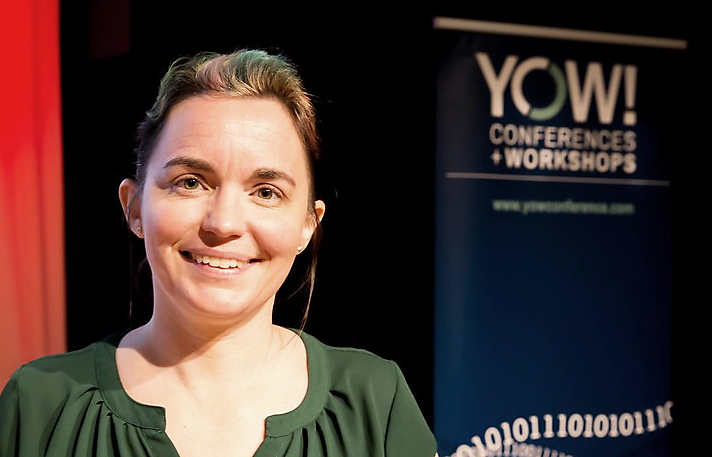In this episode of the InfoQ Engineering Culture Podcast, Shane Hastie sits down with Jessica Kerr, a renowned software developer, and conference speaker. Their insightful conversation covers a broad spectrum of topics, offering valuable insights into observability, shifting team culture, the limitations of business-aligned product teams, and the emergent properties of both software systems and team culture. This article will delve deeper into these discussions and explore how they relate to contemporary software development practices.
Exploring Observability: Unveiling the Software’s Secrets
The discussion commences with a deep dive into the concept of observability in the context of software development. Jessica Kerr, in her profound expertise, explains that observability is the ability to peer inside a complex system and gain a comprehensive understanding of its inner workings. In essence, it’s about uncovering the software’s behavior and motivations by closely examining its interactions and behaviors.
In the realm of software development, observability translates to extracting meaningful insights from the software’s performance, interactions, and responses to various inputs. It entails asking the right questions and focusing on critical indicators that truly matter. These indicators include error handling, security, user experience, and more.
Kerr emphasizes the importance of looking beyond the surface and adopting a holistic approach to observability. It’s not just about tracking basic metrics; it’s about understanding why certain events occurred and the consequences they had on the system and its users. One of the crucial points made during the conversation is that “what you measure matters.” Organizations should avoid the trap of measuring only the easiest or most convenient metrics and instead focus on those that genuinely inform decision-making.
Data-Informed Decisions vs. Data-Driven Decisions
Jessica Kerr articulates a crucial distinction between being data-informed and data-driven. While data-driven decision-making is often touted as the gold standard, Kerr argues for the importance of being data-informed. The difference lies in how organizations approach data. Being data-driven implies blindly following the data, sometimes at the expense of critical contextual understanding. In contrast, being data-informed means using data as a valuable tool to inform decisions while considering the broader context and implications.
This perspective aligns with the idea that metrics should serve as clues rather than conclusive answers. Metrics provide data that requires interpretation within the context of the larger goals and objectives of the organization. The goal is not to optimize a single metric but to understand the nuanced interplay of factors that influence the overall success and effectiveness of the software.
Cultivating Team Culture: Shaping the Intangible
Transitioning from the technical aspects of software development, the conversation gracefully flows into the realm of team culture. Kerr and Hastie explore how culture is an emergent property of teams and organizations. Culture encompasses everything an organization does and says, reflecting its collective behaviors and values.
Kerr’s perspective on culture is that it cannot be changed directly but can be shifted gradually over time. Culture is a dynamic entity, constantly evolving and adapting. Organizations should approach culture as something to be influenced and guided rather than something to be overhauled overnight.
The Complexity of Diversity and Inclusion
Diversity and inclusion are prominent facets of organizational culture in today’s workplace landscape. Jessica Kerr provides a thought-provoking perspective on these elements. She emphasizes that achieving diversity and inclusion is not a task with a fixed endpoint; rather, it’s an ongoing journey of gradual culture shift. Organizations should focus on shifting the culture to be more inclusive and diverse over time.
Diversity and inclusion, like many aspects of culture, require a holistic approach. It’s not enough to set diversity goals or implement inclusion policies; true change involves shifting mindsets and behaviors at all levels of the organization. This transformation takes time and persistent effort.
The Balancing Act of Business-Aligned Product Teams
In recent years, the concept of business-aligned product teams has gained significant traction in the software development world. These teams are organized around delivering specific products or services aligned with business objectives. While the idea has its merits, it also poses challenges related to autonomy and interdependence.
Jessica Kerr sheds light on the need to strike a balance between team autonomy and the broader business goals. Business-aligned product teams can vary in their levels of autonomy, and finding the right equilibrium is essential. Teams should have the freedom to make decisions about their products while still considering their impact on other teams and the organization as a whole.
Navigating the Complexity of Software Development and Culture
The conversation with Jessica Kerr offers a profound exploration of various facets of software development and team culture. Kerr’s insights into observability, data-informed decision-making, culture, diversity, inclusion, and business-aligned product teams provide valuable guidance for software development practitioners, team leaders, and organizations.
In the dynamic world of software development, observability acts as a guiding light, enabling organizations to gain deeper insights into their systems and make informed decisions. By asking the right questions and focusing on meaningful metrics, teams can uncover the secrets of their software’s performance and behavior.
The discussion on culture underscores the complexity of shaping and influencing an organization’s collective behaviors and values. It emphasizes the need for a gradual, persistent approach to shift culture in the desired direction.
Diversity, inclusion, and business-aligned product teams are central themes in modern software development. Organizations must embrace diversity as an ongoing journey, fostering an inclusive culture that spans all levels. Moreover, business-aligned product teams should strike a balance between autonomy and collaboration to effectively deliver on their objectives.
In conclusion, Jessica Kerr’s insights offer a roadmap for navigating the intricate landscape of software development and team culture. By embracing observability, fostering the right culture, promoting diversity and inclusion, and finding the equilibrium between autonomy and alignment, organizations can thrive in the ever-evolving world of software engineering.

